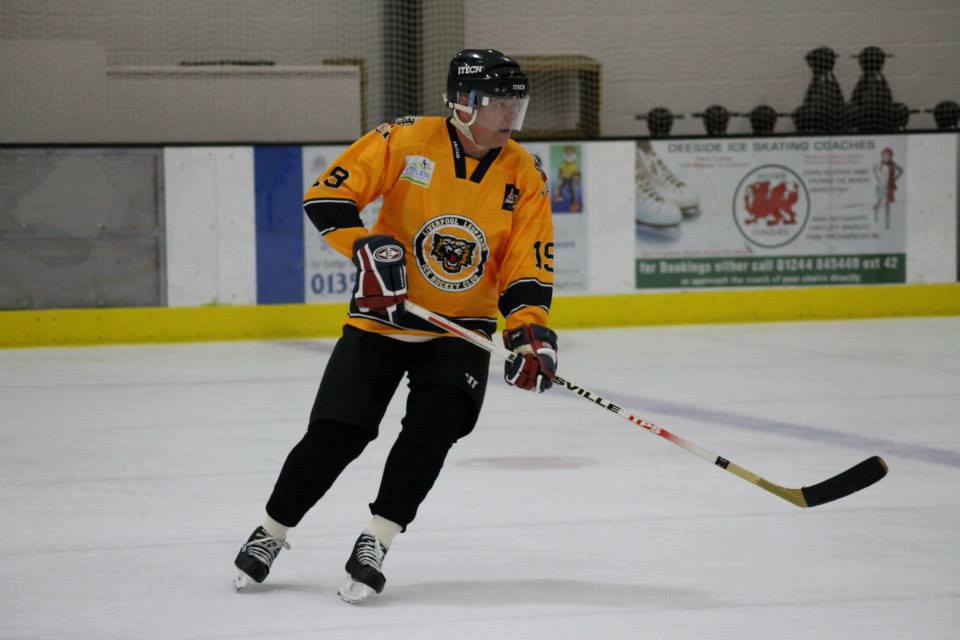
A Salford-based ice hockey physio has welcomed the new rules which make neck guards compulsory in the sport worldwide.
The physio, Bob Bramah, said: “Some players may find them uncomfortable at first but that applied to previous innovations such as helmets and visors. Players get used to them. Anything that helps to prevent injuries should be welcomed.”
When Adam Johnson died shortly after an on ice incident in late October, the sporting world stood still.
Johnson was the first player to die of a neck injury during a game in the United Kingdom, prompting questions about safety equipment within ice hockey.

Bob Bramah, a Sports Rehabilitation Lecturer at the University of Salford and life long ice hockey fan, is a chartered physiotherapist who currently works as a physiotherapist for Widnes Wild.
Bramah was in Solihull with Widnes when Johnson was initially injured: “Our game didn’t start until 7 so we kind of had a communications blackout until after the game and then players and all of us turned on our mobile devices.
“The headline at the time was that the match had been abandoned and the stadium had been cleared of the 8000 people, which is almost unheard of.”
The 29-year-old’s death has lead to the English Ice Hockey Association (EIHA) to mandate neck guards for “all on-ice activity” from January 1st 2024, with a “strong recommendation” for players to wear a guard until December 31 2023.
This decision aligns the EIHA with Ice Hockey UK, which governs the British National Ice Hockey team. However, the Elite Ice Hockey League, the top flight of British Ice Hockey would decide against mandating neck guards.
The International Ice Hockey Federation also announced that neck guards would be made mandatory at all levels of competition overseen by them. This includes the Winter Olympics.
Bramah has seen players on his Widnes team get facial cuts on the ice. He also stated how important it is for safety measures to be implemented at all levels because the lower levels of the game are less likely to have organised staff, especially those with medical training.
Bramah was quick to highlight that things could have been worse had it been a lower level game due to there typically being less physiotherapists there.
“If that happens at Widnes, there’s me and students, and if it had happened that Saturday (October 29), I’d taken two first years because they’re keen to get involved, they’ve only had six weeks”
On the University course, all third year students do the Rugby Union On Field Trauma Course, with the first part of the protocol being about whether it is safe to join the area of play and whether the player is in serious danger.
Bramah had shown the video of Johnson’s injury to the students who wanted to see as “it could be them soon.”
Previously the rules mandated that players under the age of 18 must wear neck guards and a full face helmet, with many choosing to ditch this level of equipment as soon as they reach this age limit, with neck guards being seen as “junior” and “annoying”.
With the International Governing Body now mandating the use of neck guards, there is increased pressure upon those who have not to introduce these safety measures as well.














Recent Comments